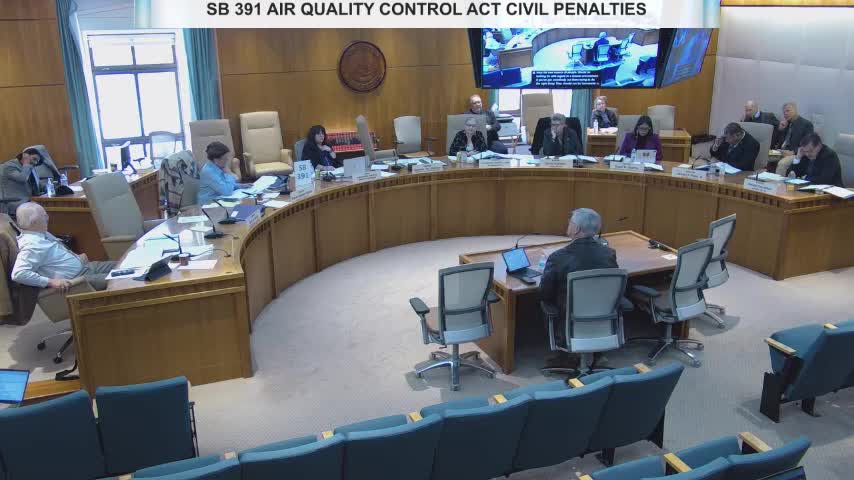Senate Committee Tables Environmental Bill Amidst Controversy Over Penalty Provisions
February 22, 2025 | Conservation, Senate, Committees, Legislative, New Mexico
This article was created by AI summarizing key points discussed. AI makes mistakes, so for full details and context, please refer to the video of the full meeting. Please report any errors so we can fix them. Report an error »

In a recent Senate Conservation Committee meeting held on February 22, 2025, significant discussions centered around a proposed bill aimed at modifying civil penalties for environmental violations. The bill, which garnered mixed reactions, seeks to ensure that penalties are not imposed based on a permittee's ability to pay. It also proposes that self-reporting violators and those facing penalties due to equipment malfunctions would be exempt from fines, provided they are actively working to mitigate environmental damage.
Senator Scott and other committee members expressed strong support for the bill, arguing that it would encourage companies to report mishaps without fear of severe financial repercussions. They believe that fostering a cooperative relationship between industry and regulators could lead to a cleaner environment, as businesses would be more willing to come forward with issues if they felt secure from punitive measures.
However, the New Mexico Environment Department opposed the bill, citing ongoing litigation as a reason for their absence from the meeting. This absence raised concerns among committee members about the lack of input from environmental regulators, which could impact the bill's effectiveness and implementation.
Senator Cervantes highlighted the constitutional implications of passing legislation that could affect ongoing litigation, questioning the rationale behind moving forward without the department's perspective. Despite these concerns, the committee ultimately decided to table the bill, a move that was anticipated by some members.
The discussions reflect a broader tension between environmental regulation and business interests in New Mexico. As the state grapples with balancing economic growth and environmental protection, the outcome of this bill could have lasting implications for both industries and the communities they impact. The committee's decision to table the bill leaves open the possibility for further debate and adjustments in future sessions, as stakeholders continue to navigate the complexities of environmental legislation.
Senator Scott and other committee members expressed strong support for the bill, arguing that it would encourage companies to report mishaps without fear of severe financial repercussions. They believe that fostering a cooperative relationship between industry and regulators could lead to a cleaner environment, as businesses would be more willing to come forward with issues if they felt secure from punitive measures.
However, the New Mexico Environment Department opposed the bill, citing ongoing litigation as a reason for their absence from the meeting. This absence raised concerns among committee members about the lack of input from environmental regulators, which could impact the bill's effectiveness and implementation.
Senator Cervantes highlighted the constitutional implications of passing legislation that could affect ongoing litigation, questioning the rationale behind moving forward without the department's perspective. Despite these concerns, the committee ultimately decided to table the bill, a move that was anticipated by some members.
The discussions reflect a broader tension between environmental regulation and business interests in New Mexico. As the state grapples with balancing economic growth and environmental protection, the outcome of this bill could have lasting implications for both industries and the communities they impact. The committee's decision to table the bill leaves open the possibility for further debate and adjustments in future sessions, as stakeholders continue to navigate the complexities of environmental legislation.
View full meeting
This article is based on a recent meeting—watch the full video and explore the complete transcript for deeper insights into the discussion.
View full meeting
